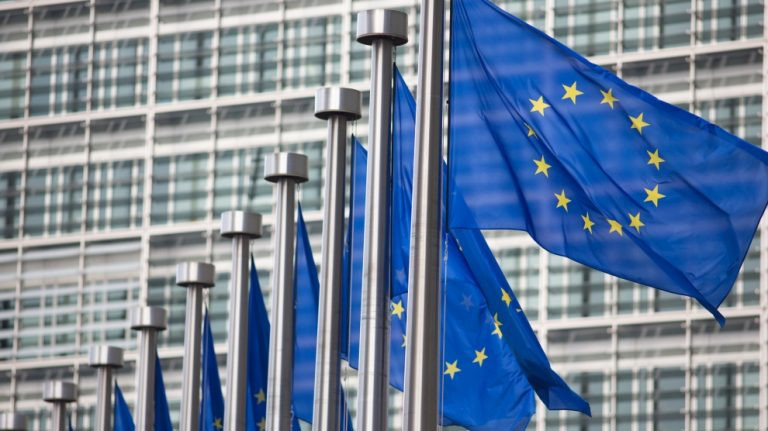Protecting intellectual property rights is a very important key when operating abroad. OECD research shows that SMEs with intellectual property rights generate 68% more revenue per employee than SMEs that do not own any intellectual property.

Southeast Asia is a promising destination for the European Union’s (EU) small and medium-sized enterprises (SMEs), thanks to open-door policies and incentives to attract foreign investment. The region is witnessing strong economic growth with a total GDP of 3 trillion USD in 2018 (5th largest in the world) and a population of 649.1 million people.
Southeast Asia is also the EU’s 3rd largest trading partner outside of Europe (after the US and China) with a merchandise trade of more than EUR 237.3 billion in 2018. In the opposite direction, the EU is Southeast Asia’s second largest trading partner after China, accounting for about 14% of the region’s trade value.
So far, the EU is the largest investor in Southeast Asian countries with a total foreign direct investment (FDI) in this area up to 337 billion EUR. Notably, so far, the EU has two Free Trade Agreements in effect with Vietnam and Singapore and is negotiating a comprehensive economic partnership agreement with Indonesia.
However, a report by the Organization for Economic Cooperation and Development of OECD and EUIPO published in 2019 shows that the majority of companies that are victims of counterfeiting and piracy are registered in Europe. China continues to be the largest source of counterfeit and pirated goods, but some of Southeast Asia’s major economies are also among the top 25 countries on the list.
The study also showed that quite a lot of EU SMEs had their intellectual property rights violated in Southeast Asia; This is something to consider when preparing your intellectual property strategy.
In the context of the COVID-19 epidemic, intellectual property violations in the online environment are increasing in Southeast Asian countries, through e-commerce platforms and social networks, due to a lack of regulations. is effective for handling intellectual property violations in the online environment.
Intellectual property rights owners should register for protection of their intellectual property rights in each of the countries concerned. Registration at the Intellectual Property Office can contribute to successful enforcement.
The Office of Intellectual Property Support for SMEs in Southeast Asia is an EU Commission initiative to assist EU SMEs in protecting and enforcing their intellectual property rights in Southeast Asia. All services provided by the Support Office are free of charge.
Why is the protection of intellectual property important?
According to the latest study published in 2021 by the European Patent Office (EPO) and the European Union Intellectual Property (EUIPO) on intellectual property rights. Intellectual property rights and company performance in the EU, SMEs with intellectual property rights generate 68% more revenue per employee than SMEs that do not own any intellectual property.
The study also shows that the protection of intellectual property rights is extremely important to the success of SMEs and, therefore, is the key for SMEs to realize the value of intellectual property. intellectual property, as well as the best way to reap the benefits of intellectual property rights.
SMEs can benefit from intellectual property protection and seize business opportunities globally if their IP portfolio is effectively managed. A strong IP strategy also helps SMEs attract capital from potential investors, helping them expand internationally in emerging markets.
According to a joint report of EPO and EUIPO in 2019, intellectual property intensive industries generate about 45% of GDP in the EU, worth 6.6 trillion EUR. These industries also account for the majority of the EU’s trade with other countries globally, equivalent to 96% of the value of goods exported from the EU.
Protection of intellectual property rights is also an important factor to promote innovation through the return on investment from R&D activities. Furthermore, a coherent intellectual property protection strategy will help SMEs prevent others from using their intellectual property for free.
Importantly, SMEs that are the legal owners of intellectual property will have to resort to enforcement action to prevent infringement of their IP rights.
In this situation, in addition to bilateral trade agreements with commitments to strengthen protection and enforcement of intellectual property rights, the EU also organizes dialogue programs on intellectual property and cooperation programs. intellectual-property techniques to support EU businesses in doing business and investing in the region, including SMEs. In addition, In addition, the European Commission has implemented initiatives such as an Intellectual Property Support Office for SMEs in Southeast Asia to provide free assistance to EU SMEs to protect and enforce their intellectual property rights in Southeast Asia.
ASL LAW is the top-tier Vietnam law firm for doing business in Vietnam. If you need any advice, please contact us for further information or collaboration.

 Tiếng Việt
Tiếng Việt 中文 (中国)
中文 (中国) 日本語
日本語
